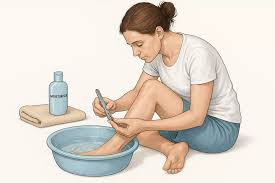Regular physical exams serve as a cornerstone of preventive healthcare. These comprehensive evaluations help detect health issues early and maintain your overall well-being. Understanding when you need a physical can help you stay proactive about your health. Here are a few times when you may need a physical:
Annual Exams
Most adults should schedule an annual physical exam with their healthcare provider. These yearly visits allow your doctor to monitor your health status and catch potential problems before they become serious. During an annual physical, your provider can review your medical history, conduct a thorough examination, and order any necessary screenings based on your age and risk factors.
The frequency of annual physicals may vary depending on your age and health status. Adults under 40 with no chronic conditions typically need physicals every 1-2 years. Individuals over 40 or those with existing health conditions benefit from annual exams. Your healthcare provider can recommend a schedule tailored to your specific needs.
School and Sports
Students often need physical exams before participating in school activities or sports programs. These exams help to check that children are healthy enough to engage safely in activity and identify any underlying conditions that could interfere with performance or safety. Schools typically require these exams annually or biannually as part of their health and safety policies.
School exams include a comprehensive review of overall health, encompassing growth and development, as well as vision and hearing screenings, and updates on immunizations. They also check for conditions that could affect learning or daily participation, such as asthma, allergies, or chronic illnesses. This evaluation helps school staff provide appropriate accommodations when needed.
Sports exams go further by assessing cardiovascular function, joint mobility, muscle strength, and endurance. They screen for heart conditions, prior injuries, or other musculoskeletal issues that could pose risks during athletic activities. These checks allow healthcare providers to recommend safe levels of participation and help prevent injuries during sports.
Work-Related
Some employers require pre-employment or periodic exams to confirm employees can safely perform their job duties. Exams focus on role-specific physical requirements, such as strength and the ability to handle hazardous materials. Jobs with demanding tasks may require more thorough evaluations. Employers specify the type and frequency of physical work required.
Women’s Health
Women’s health exams address gender-specific health concerns and preventive care needs. These specialized physicals include screenings for breast cancer, cervical cancer, and reproductive health issues. Women often begin regular gynecological exams by age 21 or when they become sexually active.
The frequency of women’s health exams depends on age, risk factors, and screening results. Annual exams typically include pelvic exams, Pap smears, and breast examinations. Your healthcare provider can recommend appropriate screening intervals based on current guidelines and your individual risk profile.
Schedule Your Next Physical Today
Regular physical exams provide an opportunity to monitor health and identify potential issues early. They help maintain continuity of care and keep preventive screenings up to date. Different types of exams address specific needs, ranging from annual checkups to exams required for work, school, or participation in activities. Staying current with these exams supports overall well-being and checks that you meet necessary health requirements. Schedule your next physical to maintain consistent care.














